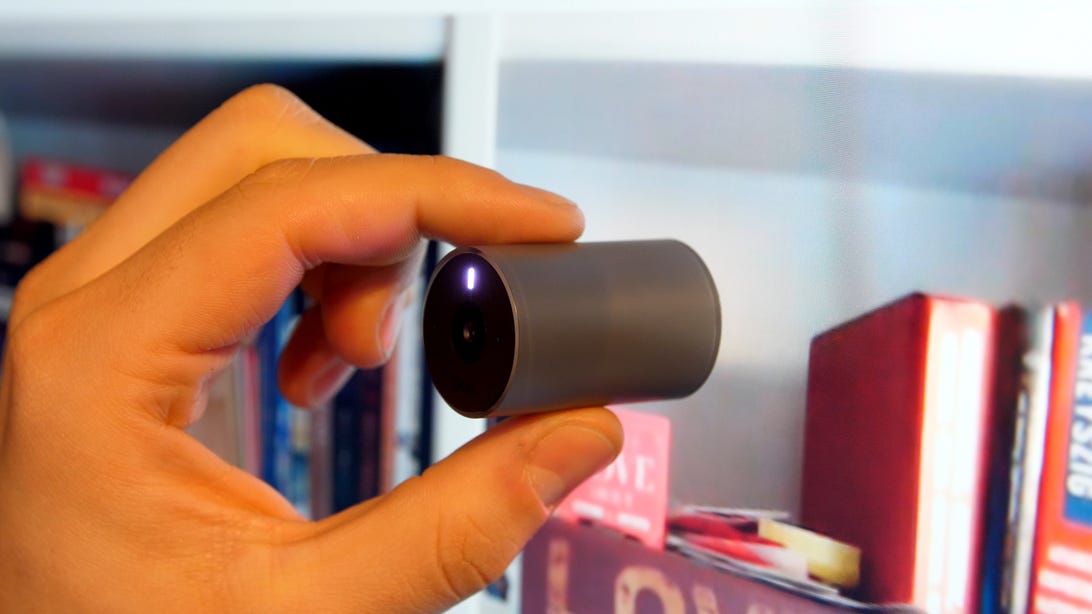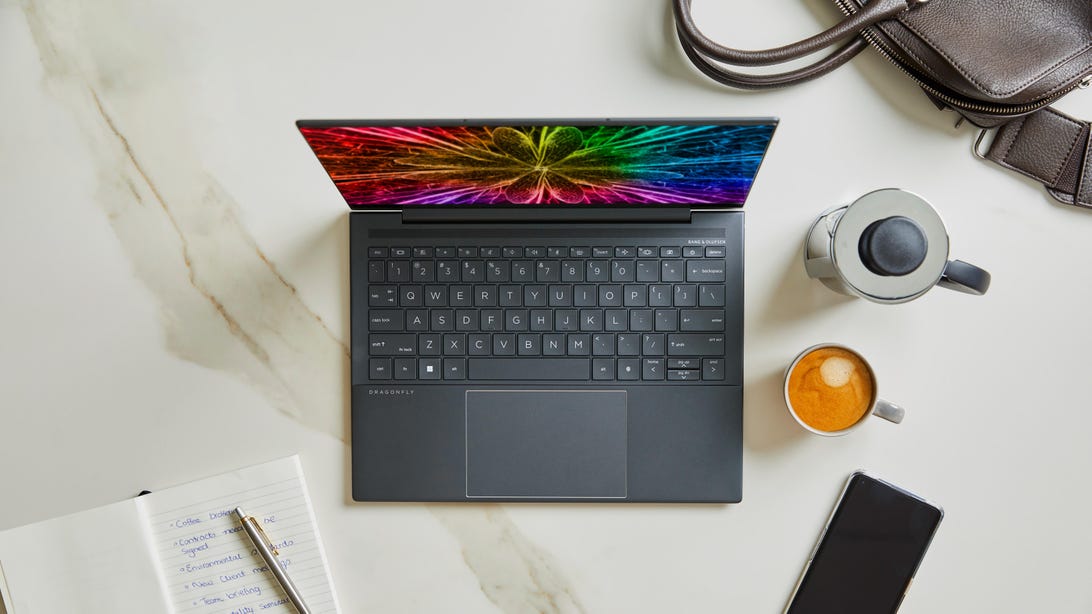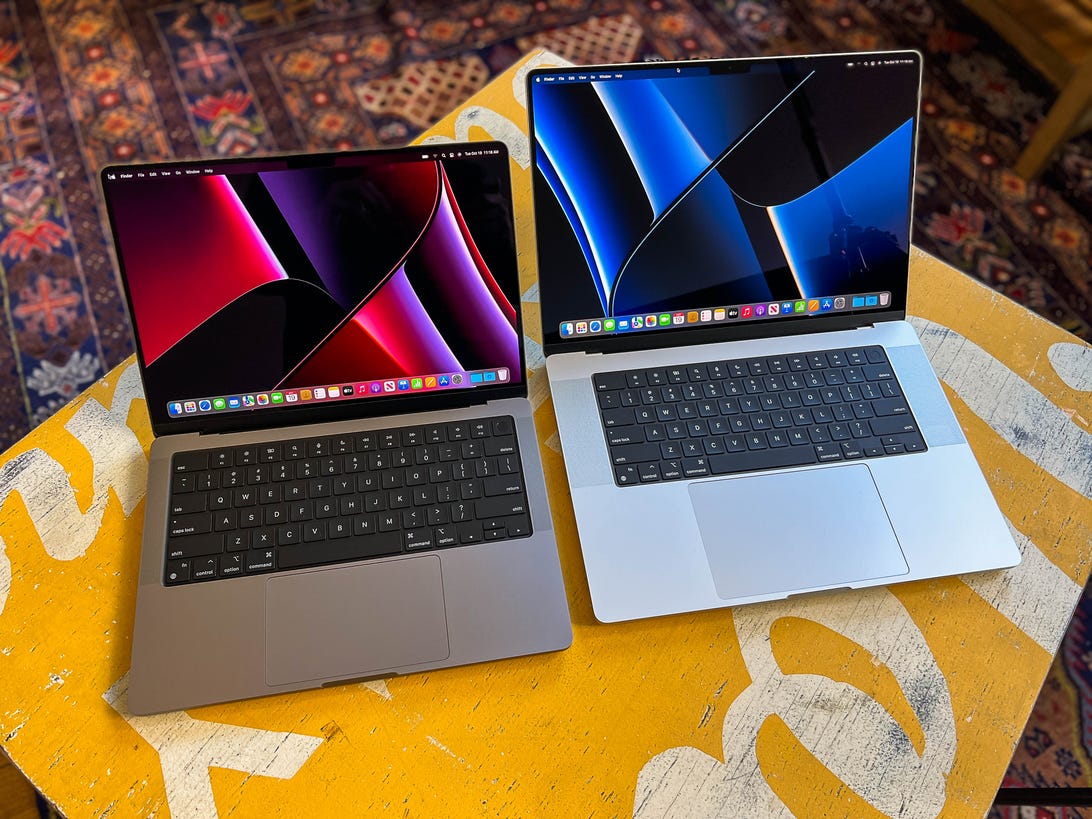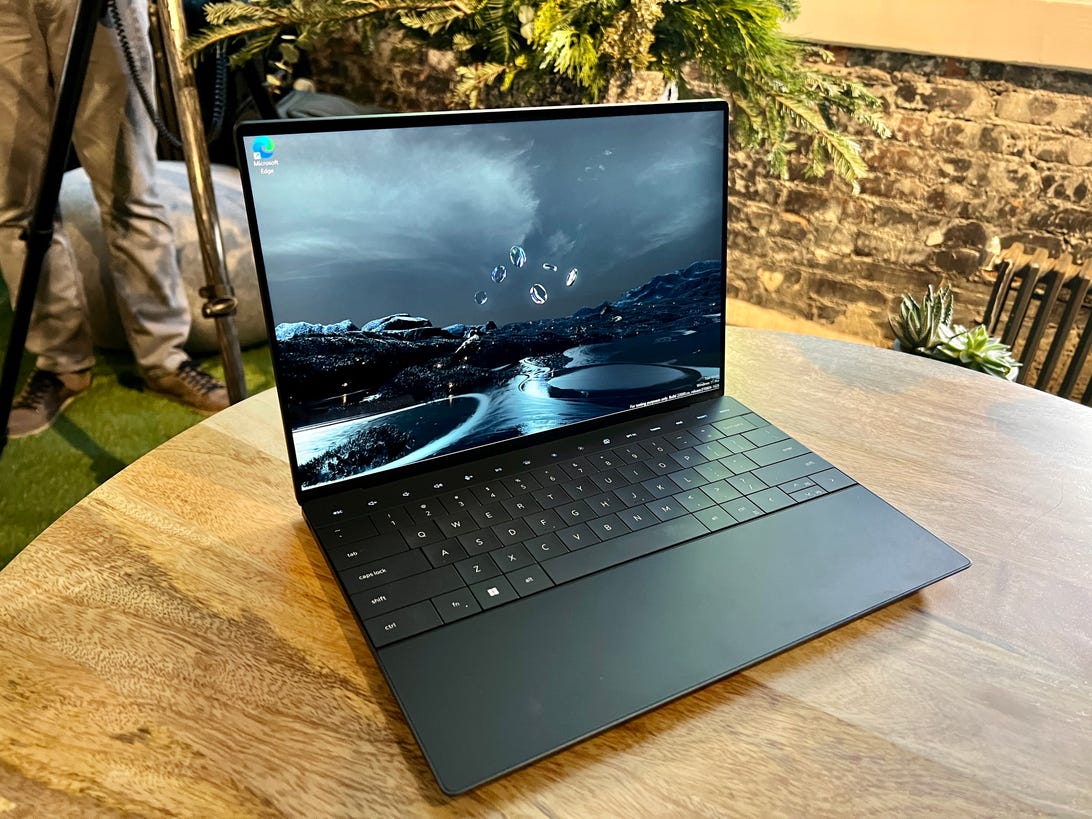
Dell's wireless webcam prototype.
Richard Peterson/CNETThe years 2020 and 2021 served as a reminder of just how central computers are to work, school, home and just about everything we do. It started around March 2020, when many people took their work laptops home, and then didn't return to the office for over 18 months, if at all.
During that time, we changed how we attended meetings, collaborated on projects and learned new things. But, for the most part, our work-from-home and learn-from-home tools were the same as the ones we had before the COVID-19 pandemic.
Unfortunately, that work laptop just wasn't designed for all-day video meetings, or for sitting in a virtual classroom. Case in point: Most laptops during this time still had lousy webcams and merely adequate microphones. You could always tell when someone had a hard-to-find full-HD standalone webcam (or better) with a good eye line and clear image. Many people were stuck with something like a MacBook Air, with a tilted up-the-nose shot and soft and blurry image.
It's not that we didn't know that turning every home office into a primary office would mean more people would want better cameras, mics, displays and more. But reacting to that need -- by designing a new product or new features, then getting something manufactured and into stores -- is a multi-year process. That's why it's only as we step into 2022, at CES and beyond, that we're starting to see even simple features like full-HD webcams go mainstream.
The pandemic also made one-laptop-per-person even more of a rule than it already was. That's because every single household member, adults and children, needed their own full-time system. You might have your office laptop with you -- but it might be old and junky enough (or so corporate) that you'd want something else. You or your spouse might be a freelancer and need their own laptop. Meanwhile, every school-age child in the family suddenly needed a separate laptop for remote schooling -- no more sharing a system for the kids or having a centrally located family PC.
Here's how these trends, pushed into high gear by the pandemic, are going to be reflected in the new PCs and laptops of 2022 and beyond.

HP's ultralight Elite Dragonfly laptop.
HPEasy fix: Betters webcams and mics
For years, the 13-inch MacBook Air was the single most universally useful laptop most people could buy. With one significant flaw – the mediocre 720p webcam. See enough of these and you could almost tell who in your Zoom meeting was on a MacBook, just as some experienced radio DJs can tell which microphone someone is using just by the sound.
To its credit, Apple started rolling out better cameras right away, starting with the 2020 version of the 27-inch iMac. I appreciated its 1080-pixel camera so much I ended up dragging it from one corner of my house to the other just to use the webcam and mic in meetings and TV appearances. The trend continued in the 24-inch iMac and the new 14-inch and 16-inch MacBook Pro laptops.
Now, and into 2022, you can expect many more full-HD cameras in laptops from Lenovo, Dell and others. It won't be in every model, as it's still an additional expense and frankly may require a larger camera unit, but it gets closer to becoming the universal standard every day. And whether you're working from home, in an office or both, that's a good thing.

The latest MacBook Pro laptops already have upgraded 1080p webcams.
Dan Ackerman/CNETNew recycled ideas
Everyone wants their product to be green, and sometimes it's even for non-publicity reasons. I've heard about laptops and accessories that used a certain amount of recycled plastic, or recycled paperboard in computer packaging, but 2022 means even more laptops will be built around recycling materials and reusing parts.
Dell impressed me recently with a new concept demo called Luna. The idea is that your laptop will have many more user-accessible parts, not so much so that you can upgrade them later on (although I'd still like to see that), but more so you can swap out old or defective parts and Dell can reclaim the unused ones without junking the whole laptop. It also makes it easier to trade in a used laptop so the hard drive, CPU, RAM and other components can be stripped out and slotted into new machines.
The Luna is just a concept project, not a real laptop line, but I'm hoping some aspects of it will make it into real products sooner than later.
What you can look forward to from computers in 2022 is more recycled material in laptop packaging and even power adapters, even if that's tougher to do with the laptop body itself.

The new Dell XPS 13 Plus also sported a few cutting edge upgrades, including a capacitive touch function key row and an all-glass front lip.
Dan Ackerman/CNETNew ways to work
Some upcoming innovations promise to ease a little of the awkwardness that remote work brings. A few of these have already been announced, like Dell's Flow concept, which automatically connects and disconnects a laptop from a secondary display based purely on proximity. I also liked Dell's Pari webcam prototype, which is wireless and able to stick itself anywhere on your screen to get the perfect eye line. Or you could just pick it up and aim it anywhere, from the whiteboard across the room to the brilliant idea you sketched out on a cocktail napkin.
These developments are still in the concept or prototype stage, so don't expect them any time soon. But I think we will see more innovative helper apps and features this year, like laptops that can alert you when someone is peeking over your shoulder or that can log you in with facial recognition, even when you're wearing a mask.
The final frontier may be the smart desk. What will it look like and what will it do? I don't think there's universal agreement on that yet, but I suspect it'll start with wireless charging and may move into secondary displays, ergonomic adjustments and more.
Wider chip choices
Two big forces are helping laptops and other computers move away from being so dominated by Intel chips. One is that wide adoption of Chromebooks, especially from students engaged in some level of remote learning, is opening the door to more ARM-based laptops, which were previously nonstarters in the Windows world.
Second, Apple's aggressive timeline for shifting the entire Mac lineup from Intel to its own M-series chips has shown that laptops that skip Intel or AMD chips don't have to skimp on performance. In fact, the latest M1 Pro and M1 Max MacBooks are miles faster than most of the Intel models they replace. Google is said to be prepping its own chip, specifically for Chromebooks, as well.
Still, Intel controls roughly 75% of the computer market, and this widening of the playing field may be affected by many factors, including ongoing chip supply shortages. And since so many people had to splurge for an emergency upgrade to a new laptop over the past 18 months, those people may be reluctant to upgrade again so soon.
Laptops of CES 2022: These new computers hold the key to the future of work - CNET
Read More

No comments:
Post a Comment